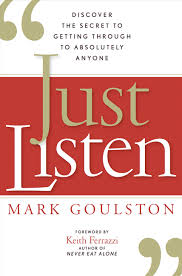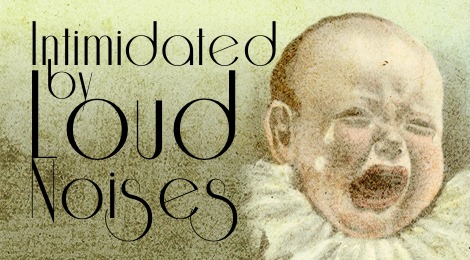A rational person may become violent for many reasons, but the general explanation is that they realize they cannot get what they want through verbal negotiation. Emotions play a big role in this evaluation of circumstances, so I'm not claiming that a calm and rational mind will clinically decide to attack after a cost-benefit analysis of communication. Rather, I mean that a person will demand something (often "respect") and when they do not get it, they are emotionally triggered and start to think about harming the other person. The heightened emotions of fear or anger cloud the thinking, which lead to physical manifestations in speech, such as yelling or pacing; and then a physical attack occurs.
Those fantasies are no different than trying to imagine different scenarios when faced with a bear in the forest: Do you slowly back up, do you run, do you make loud noises? Making the wrong choice could mean death. The heart pounds, ready for action, for fight-or-flight.
And when one side starts exhibiting signs of emotional activation and potential violence because of verbal or non-verbal threats, the other side naturally gets nervous about being attacked. That apprehension leads to the same strategizing and clouding of rational discourse.
I confess that the reason I’m writing this article is because I want to improve this response in myself. I can feel the adrenaline rise in my veins and my heart pump faster when I am trying to calm someone down and they are raising their voice at me. I also confess that I don't have great success.
From a self-defense standpoint, there is a strange paradox at work, which is why peaceful people are faced with this dilemma: Staying calm means you may not be physically ready to run away or respond with fast action if necessary. However, getting excited will make violence more likely, since you won't be bringing calm and rational discussion to the encounter. How does one keep a calm, rational mind while preparing the body in case of attack?
Overpowering Speech
Talking louder than the other person is an obvious and direct escalation. They are escalating the volume, using more energy, broadcasting their thoughts farther through the air, and possibly causing hearing damage if you're too close. Yelling is a way of attempting to overpower someone without touching them.
Yelling, like other exertions of force, favours the larger person. A bigger lung capacity generates more volume of air to move, and a larger larynx creates a deeper sound, allowing for loudness without harming the throat. Yelling is therefore a means of oppression since the physically larger can intimidate and harass the physically smaller.
Another kind of overpowering speech is the use of interruption. It is incredibly frustrating to desire honest communication and direct expression, and give the other person time to speak their full thought, only to be shut-down mid-sentence when you think you've been given the opportunity to respond. If you are the more polite party, you may not get the chance to tell your side of the argument or stand up for yourself if you are interrupted.
What is to be done?
Insults
What can make your blood boil more than someone insulting you to your face? Learning of an insult behind your back, wondering how many people now believe their attack on you with no way for you to defend yourself? Insults about your family or heritage?
Listening to the other person instead of waiting for an opportunity to spout your own opinions is only good advice if they aren't cursing you and making rude comments about your mother. Listening carefully to that may not be helpful.
Insulting someone's religion or culture is another hot-button issue. Blasphemy has incited wars, not to mention deadly personal attacks.

A recent episode of Point of Inquiry featured Austin Dacey. Austin's books include The Secular Conscience: Why Belief Belongs in Public Life and, just out, The Future of Blasphemy: Speaking of the Sacred in an Age of Human Rights. International Blasphemy Rights Day held each year on September 30, is administered by the Center for Inquiry as part of its Campaign for Free Expression. Listen to the episode here: http://www.pointofinquiry.org/austin_dacey_-_the_future_of_blasphemy/
So what is the limit of free speech? Can you endure religious persecution or personal insults without punching the offender in the face?
Perhaps the only advice I can give is: Keep it classy. If you've got a complaint, try not to resort to insults because it will only escalate the tension and lead to violence. However, I don't expect you to react calmly and quietly to every form of humiliation. Stand up for yourself.
The yelling and use of language is where I try to remember to laugh about it. If you can, try to see the humour when a person gets upset and starts insulting you. Cyrano de Bergerac famously insulted his own nose in a long diatribe when a courtier used a weak insult:
http://youtu.be/QEacXeAbHpQ?t=1m17s
In other words, an insult of any kind is just sound waves. Yelling is merely stronger sound waves. Unless they are actually threatening you, breathe deeply and look for humour. Of course, Cyrano is confident because he can also kill the guy. Perhaps the confidence you gain by learning Bartitsu will mean that you'll avoid more violence by staying calm.
Directness
If one feels insulted, belittled or socially rejected, the most honest response is to express your displeasure. In doing so, your words will carry your negative reaction. That negativity may be interpreted as trying to control the other person, punish them, or shame them, which will be taken badly if they think it's an overreaction (which they always will).
I think it's important to stress that both sides are trying to express themselves honestly, and are striving for fairness. These are noble goals. Unfortunately, it may escalate quickly.
It seems to me that one typical feedback cycle in interpersonal violence goes like this:
- X feels insulted by Y who didn't intend an insult
- X tries to express their annoyance, but Y interrupts to explain that they didn't mean it
- X interrupts Y and raises their voice due to anger, trying to finish their thought
- Y begins to fear the anger, and stops listening while they imagine how to respond if there is violence
- X may insult Y directly as a way of balancing the tables, or their body language implies an overreaction and lack of respect
- Now Y feels insulted, so we begin the cycle again at 1, roles reversed and with more energy
How do you interrupt this pattern so that it doesn't lead to violence?

In Just Listen, Mark Goulston gives advice on communication in the realms of personal dealings, business situations and hostage negotiations. He says that a person who is threatening imminent violence has devolved into a more primitive form of thinking, and you must help them evolve through these stages:
- Tell me what happened
- Repeat what they said, and ask if that's correct
- Wait for "yes," then ask how they're feeling. You can suggest: "And that makes you feel angry?"
- "And the reason you need to change this NOW is…"
- Let's find a way to fix it together and make sure this never happens again.
The easiest weapon at hand in any social situation is projecting negative feelings. One hopes that honestly expressing displeasure will lead to an immediate apology in polite society.
However, emotions reside inside you. Other people’s opinions, even when expressed in facial movements and sound waves, should not stress you, because their opinions and their emotions reside inside their head. Unless you think it may lead to physical attack. If they are threatening violence in words or non-verbal communication, the feeling of stress is activation of the useful sympathetic nervous system for your survival in fight-or-flight.
The featured image was made from a Victorian postcard depicting a baby crying for her absent mother, with the caption "Mummy's a Suffragette." Apparently we should ask babies their political opinions and not their mothers!
